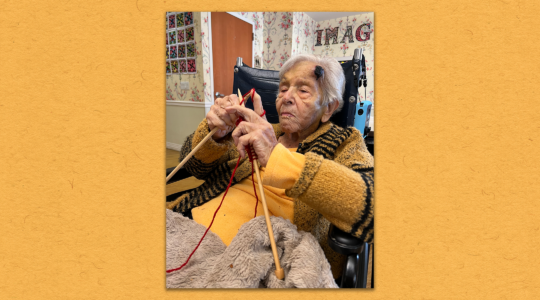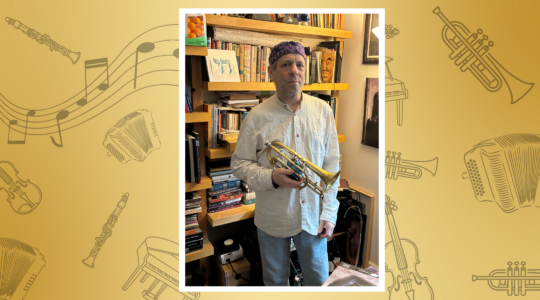For Ruti Regan, the first openly autistic rabbinical student to attend Jewish Theological Seminary, the Passover seder is laden with messages about inclusion.
“The redemption story is all about building sanctity, even when the situation is degrading,” said the 31-year-old North Carolina native. “When we’re in exile, we need to acknowledge the hardship but not be consumed by it. We have to keep building.”
For Regan, continuing to build in the face of overwhelming obstacles is her modus operandi. Two years ago, she launched Anachnu, a nonprofit organization that works towards full equality for Jews with disabilities. The organization, run by Jews with disabilities, operates on “three we’s,” said Regan: “We the Jewish people, we people with disabilities, and we Jews with disabilities.”
“Our ‘we’ needs to be broad — we can’t imagine out anyone,” she said. So far, the organization has pioneered several innovative projects, including #ParshaChat, a weekly Twitter conversation on the parsha that addresses the disability experience, and “Seeing Tzelem Elohim,” a workshop that supports families through the disability acceptance process.
For Regan, her Judaism is intimately connected to her experience as an autistic individual. “The Torah taught me that we are all created in the image of God. Disability taught me how to mean it,” she said.
It’s a message she doesn’t keep to herself. On her blog, “Real Social Skills,” which has over 13,000 followers, Regan writes about the difficulties people have communicating with one another, sometimes because of disabilities.
One universal key to communication, according to Regan, is humor; she herself is not above joking about her disability.
“Who sits around all day, rocking back and forth, focusing on minutiae and not making eye contact? It’s not a coincidence that autistic people have so much in common with Beit Midrash culture,” she joked.
Though Regan dreams one day of having her own congregation, she feels her calling right now is to ensure that the Jewish community can “hold disability experience with dignity and equality.”
Still, though the task is big, one’s perspective is half the battle.
“It’s less about the moments of realizing how huge the problem is, and more about realizing there’s something we can do about it,” she finished.
Her favorite biblical character is Moses. Though this canonical hero has a stutter, God insists he’s the right man for the job — not despite his disability, but because of it, said Regan. She sees the Moses story as emblematic of the disability experience — “You never know what you’re truly capable of until you try.”
The New York Jewish Week brings you the stories behind the headlines, keeping you connected to Jewish life in New York. Help sustain the reporting you trust by donating today.




